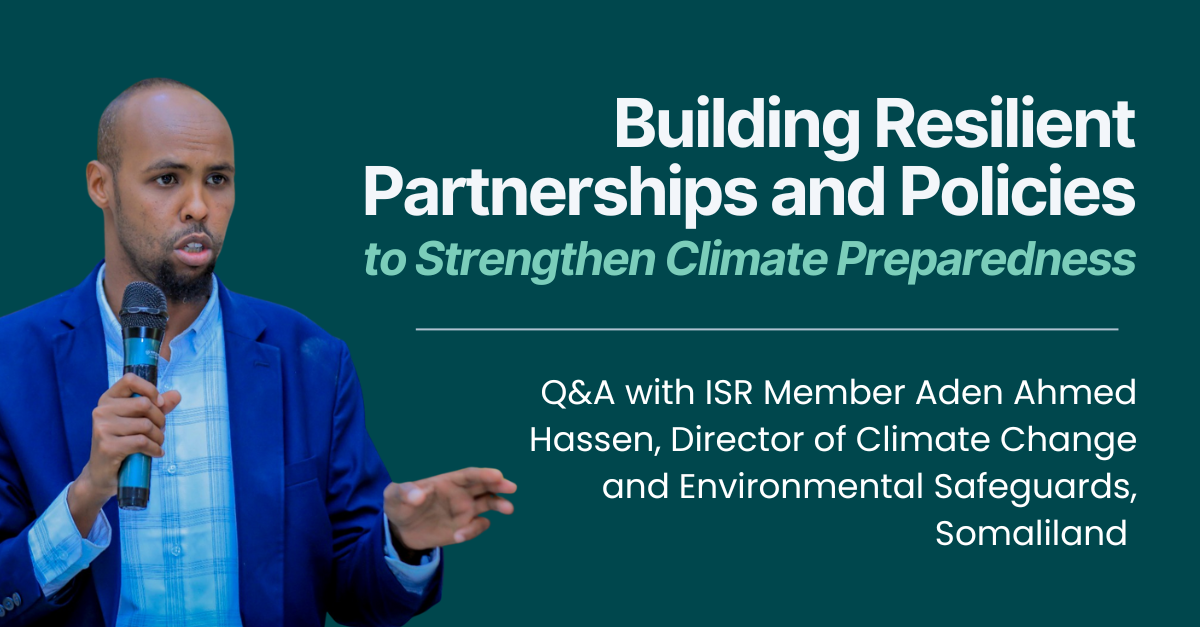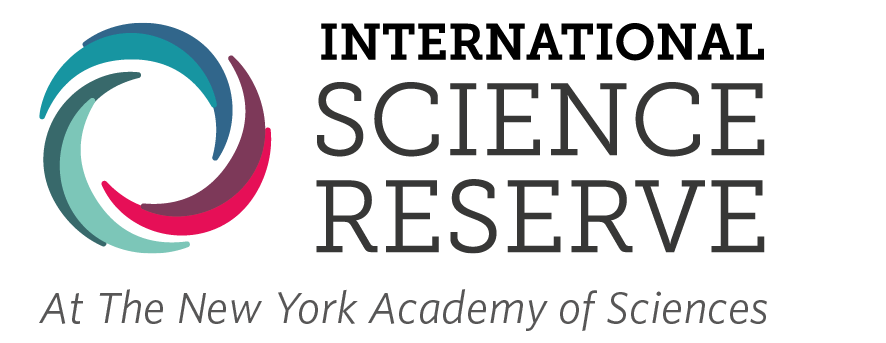Building Resilient Partnerships and Policies to Strengthen Climate Preparedness
by ISR Staff

International Science Reserve member Aden Ahmed Hassen is a passionate advocate for the environment and a firm believer in the urgent need to address climate change. He currently serves as the climate change and environmental safeguards director at the Ministry of Environment and Climate Change (MOECC) in Somaliland in the Horn of Africa.
Aden recently spoke to the International Science Reserve about his work.
What drove you to work on climate change and the environment?
My journey into climate change work is deeply personal. Growing up in Somaliland, I saw how recurring droughts can devastate communities — livestock died, farms failed, and families in towns like Saylac and Lughaya (Awdal) were forced to leave their homes. These experiences made it clear that climate change is a daily reality, affecting whether people can eat, work, and live with dignity.
What are some of the biggest challenges for Somaliland and surrounding regions when it comes to climate change?
Somaliland is in the Horn of Africa, and bordered by Djibouti to the northwest, Ethiopia to the south and west, and Somalia to the east. The region is facing several impacts related to climate change and human activity, including drought and water security, land degradation and deforestation, and food insecurity and displacement.
In recent years, we have seen increasingly erratic rains and frequent droughts that cause livestock deaths, crop failures, and drinking water shortages. We are also experiencing more soil erosion, desertification, and biodiversity loss from overgrazing, charcoal production, and poor land use.
Finally, climate shocks have undermined pastoral and farming livelihoods, which in turn, can lead to hunger, migration, and increased social tensions.
How can scientists and researchers work more with the government to help prepare the public for disasters?
I believe in the practice of co-producing and sharing knowledge. Climate researchers at universities and regional climate centers can simplify rainfall and drought forecasts by translating them into local languages. In Somaliland, for example, the Ministry of Environment and Climate Change (MoECC) and Ministry of Education can communicate this knowledge through schools, radio, and community meetings, so pastoralists and farmers understand risks and options.
We also need to build joint early warning and response systems to save lives and communities in disaster. For example, by strengthening collaboration between the Somaliland Meteorological Department, MoECC, and disaster agencies (like The Somaliland National Disaster Preparedness and Food Reserve Authority, or NADFOR) to deliver real-time drought and flood alerts via SMS, radio, and community leaders. Scientists provide the technical forecasts, and the government ensures communities receive them in actionable ways (e.g., moving livestock, storing fodder, harvesting rainwater).
Finally, it is important to focus and plan for capacity building and policy alignment. For example, governments can invest in local climate research and training for officials. Scientists can help design evidence-based land management policies (e.g., banning unsustainable charcoal, guiding reforestation) and advise on climate-smart agriculture. Growing capacity to train extension workers ensures that government policies reach farmers and pastoralists effectively.
Is your department collaborating across borders and disciplines to prepare for climate-related disasters?
Yes, the Climate Change Department at the MoECC is actively collaborating with partners to strengthen preparedness for climate-related disasters. For example:
- Regional Cooperation: We work with the Intergovernmental Authority on Development (IGAD), an eight-country trade bloc and Regional Economic Community in Eastern Africa. IGAD hosts a Climate Prediction and Applications Centre (ICPAC) to access regional climate forecasts and early warning data.
- Research Partnerships: We also collaborate with universities. For example, Amoud and University of Hargeisa and international partners to help generate applied research on drought resilience, land restoration, renewable energy, and disaster risk reduction.
- Multidisciplinary Engagement: We work with climate advocates and civil society to help raise awareness at the community level and feed local knowledge into policy decisions.
What inspired you to join the International Science Reserve – and why should others join too?
I joined the International Science Reserve because I wanted to bridge the gap between global scientific knowledge and local action in Somaliland. Being part of this network allows me to learn from experts, share our experiences, and bring practical, evidence-based solutions to communities facing climate and environmental challenges.
I encourage others in government to join because it strengthens the link between policy and science, enhances disaster preparedness, and empowers us to make decisions that can truly improve lives and build resilience for future generations.


